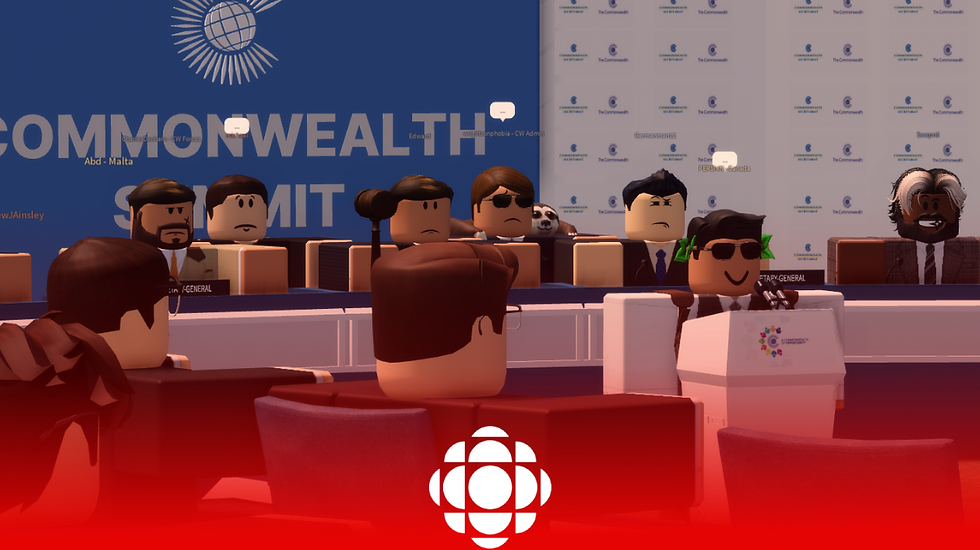Canada’s Sovereignty in Question as UK Passes Controversial Commonwealth Act
- Carvedshell 325
- Jun 2
- 3 min read
A growing political storm is brewing across the Commonwealth after the United Kingdom passed the controversial Commonwealth Act, legislation that grants Westminster sweeping powers over Commonwealth Realms — independent nations like Canada, Australia, and New Zealand — in what critics are calling a direct threat to national sovereignty.
While the Act is legally unenforceable in sovereign nations, its symbolic and political implications have drawn sharp criticism from Canadian lawmakers and constitutional experts. The bill, now law, claims authority to involve the UK Parliament in the internal constitutional affairs of Commonwealth Realms — countries that share the Crown but are governed by their own independent institutions.

A Dangerous Overreach
At the heart of the controversy is a provision within the Act that suggests Commonwealth Realms must “negotiate” constitutional matters with the UK — a claim many view as both offensive and unconstitutional. One widely-circulated letter from a senior political figure condemned the Act’s tone and implications:
“These are independent countries with their own constitutions, their own parliaments, all of which just happen to share the same crown… The provisions in this bill which state that Commonwealth Realms need to negotiate regarding their own constitutions is completely ludicrous and infantilizing... We are now treating them like dependent children. It's disgraceful.”
Canada’s Institutions at Risk?
Though the UK Act does not legally supersede Canadian law, it has ignited deep concern about how the bill may be interpreted or misused in the future. Experts warn of potential diplomatic strain, interference in governance, and the erosion of trust between nations that make up the Commonwealth.
Canada, with a fully independent parliamentary democracy and a Constitution crafted by Canadians for Canadians, has no legal obligation to follow UK law. But the passage of this Act has nonetheless alarmed civil servants and lawmakers alike, raising questions about the future of Canada’s constitutional independence and whether existing institutions — including the Governor General, Privy Council, and even the Supreme Court — could be drawn into unnecessary political or diplomatic disputes.
Opposition Leader Responds
Leader of the Opposition iPractixal, head of the Conservative Party, issued a strong statement this morning addressing the growing unrest:
“It is the solemn duty of the Loyal Opposition to serve as a vigilant steward of your trust, your rights, and our shared national future… I initiated direct communication with the Prime Minister of the United Kingdom and senior members of His Majesty’s Government to address concerns regarding Canada’s sovereignty.”
“I am pleased to report that the Government of the United Kingdom has clearly and unequivocally affirmed that it has no intention whatsoever of restricting the freedom, independence, or self-governance that Canada has rightfully exercised for many years.”

The Opposition has made it clear that while loyalty to the Crown remains a principle of Canadian governance, it cannot come at the cost of silence or submission. iPractixal’s office affirmed that Canada remains an independent, sovereign nation and that Westminster “will hold no authority—neither legislative, judicial, nor executive—over any matter within our jurisdiction.”
The statement concluded with a pledge to continue holding the federal government accountable for any inaction, reaffirming the Opposition’s role in defending democratic integrity and constitutional clarity.
What Happens Now?
With no formal response yet from the Canadian federal government, it remains unclear how Prime Minister Graffon and his Cabinet will address the matter publicly. The silence from the executive branch has already drawn criticism from across party lines and raised concerns about whether Canada is doing enough to defend its constitutional autonomy on the world stage.
Several other Commonwealth Realms are expected to issue their own responses in the coming days, and foreign policy analysts suggest this controversy may fuel increased calls for republicanism in several member states — including Canada — where debates about severing ties to the monarchy have quietly gained momentum in recent years.
This is not just a diplomatic squabble. At stake is the principle that Canada governs itself, free from external interference, no matter how symbolic — a principle that must be protected now more than ever.
CBC has reached out to the Prime Minister's office for a response.
The Canadian Broadcasting Corporation will be doing a full-fledged investigation into the matter regarding implications of the UK Civil Service and its institutions, which have heavily impacted politics here in Canada.




Comments